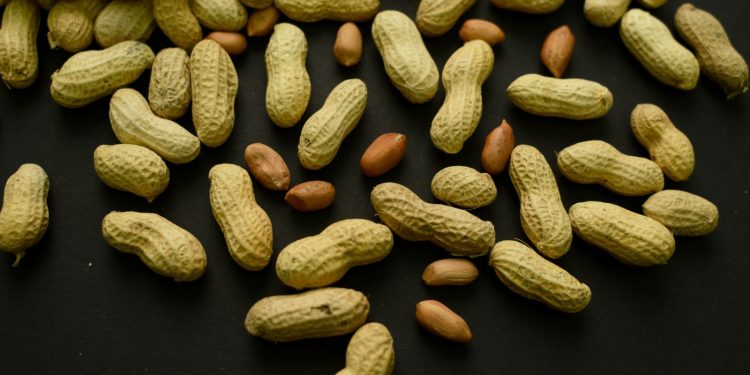Researchers say fewer children developed peanut allergies after guidelines were put in place calling for the introduction of peanut products to young children.
Patrick Sison/AP
hide caption
toggle caption
Patrick Sison/AP
For years, parents have been told not to expose their babies to peanuts, to prevent a potentially dangerous allergy. But 10 years ago, a landmark study found the opposite, saying that if babies consumed peanut products at an early age, they were much less likely to become allergic to them.
Health experts quickly noticed – and the resulting reversal of pediatric guidelines helped push peanuts out of the top spot as a cause of food allergy in children under 3 in the United States, according to a new study published in the peer-reviewed journal. Pediatrics.
“Early introduction of allergens works,” Dr. David Hill, who led the study, told NPR. “For the first time in recent history, it appears we are beginning to curb the food allergy epidemic in this country.”

Growing concerns about food allergies have reshaped parts of Americans’ diets, from schools and camps banning peanut butter from sandwiches to airlines doing away with once-ubiquitous bags of salted nuts. In 2015, The New England Journal of Medicine referred to a quadrupling in the prevalence of peanut allergy among American children, citing growth from 0.4% in 1997 to more than 2% in 2010.
But when U.S. health guidelines changed in 2015 and 2017, that trend changed as well, according to Hill, a pediatric allergist at Children’s Hospital of Philadelphia and assistant professor of pediatrics at the University of Pennsylvania.
“There was a 43% reduction in the prevalence of peanut allergies,” says Hill, “and a 36% reduction in the prevalence of food allergies.”
He estimates that the new guidelines have helped prevent peanut allergies in at least 40,000 children over the past decade.
The turning point in peanut allergy prevention came in 2015, when research was published aimed at solving a puzzle: why was peanut allergy 10 times higher among Jewish children in the United Kingdom than among Israeli children of similar ancestry? The researchers noted that while British and American parents kept their babies away from peanut products, many Israeli parents regularly fed their infants a puffy peanut snack called Bamba.

The revised recommendations, including in the Dietary Guidelines for Americans, call for introducing infants deemed at high risk for peanut allergy to peanut-containing foods starting at 4 to 6 months of age, consistent with guidance published in 2017 by the National Institute of Allergy and Infectious Diseases.
Hill and colleagues examined the rate of food allergies in young children before and after the release of revised guidelines for peanuts and other allergens. To do this, they analyzed the health data of more than 120,000 children in the United States, using records from dozens of different pediatric practices.
Dr. Corinne Keet, a professor of pediatrics at the University of North Carolina at Chapel Hill who works in the epidemiology of food allergies, says she finds the study interesting, although she is wary of reading too much into it. She did not participate in the research.
“I’m a little surprised by these results, because I might have expected that we would have more diagnoses just because people were thinking about allergies more” over the past decade, she says.
Keet explains his caution in part because his own research has found that families have not fully implemented the new guidelines, in many cases out of fear that an infant’s exposure to peanut products could also endanger a sibling or allergic parent.
Keet also says that it’s simply difficult to conduct a high-quality study on the prevalence of food allergies. She notes that the influential 2015 study, called LEAP (Learning Early about Peanut Allergy), produced definitive results by conducting a large clinical trial following hundreds of young children over time.
Hill and colleagues acknowledge that their study has limitations, such as relying on diagnostic codes, which are not necessarily equivalent to actual allergy rates. Their data also does not include information on children’s eating habits.
Still, he sees the study as another positive sign that strategic change is helping children. The benefits are far-reaching, he adds, because many peanut allergies are lifelong.
“It’s very persistent,” Hill says. “Only about 10% of children who develop a peanut allergy will outgrow the allergy.”









